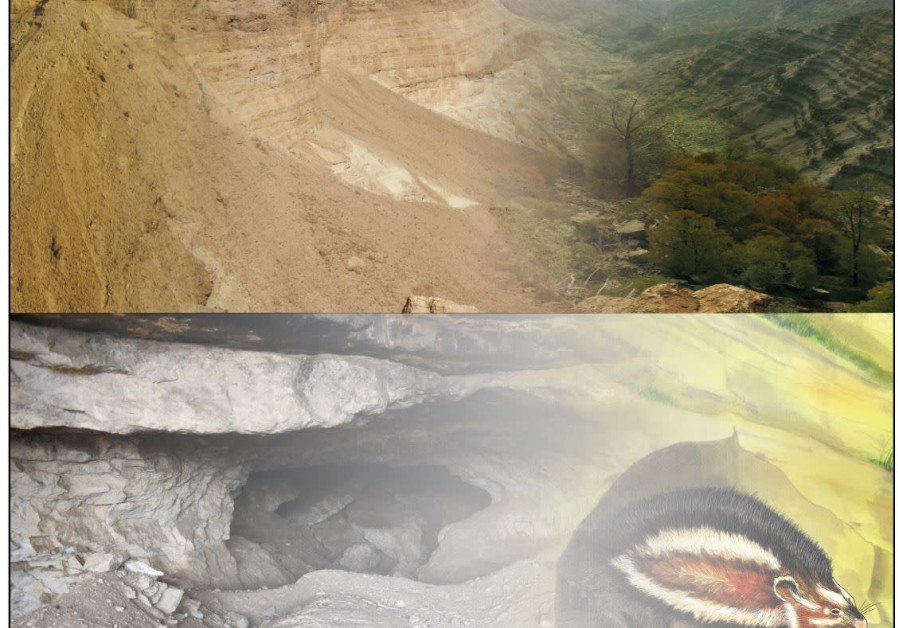Rat bones show climate helped early humans out of Africa through Israel
Researchers explained that the rodents, in order to survive at the time, would have needed more humid conditions, suggesting that the Judean Desert was greener and wetter.
“These are very, very close animals, so if today this species lives
in humid areas, chances are that even about 100,000 years ago the
subspecies we found would have needed the same conditions,” they added,
suggesting that at the time the Judean Desert was greener and wetter.

An
illustration that combines the appearance of the area in the Judean
Desert where the bones were found and an illustration of how it once
looked based on the driest place where the mane rat is today, in
Djibouti. (Photo credit: Aya Mark/Dr. Ignacio A. Lazagabaster)
According
to the dating conducted by the researchers using radio-carbon and other
methods, the bones found date back to a period between 120,000 and
42,000 years.
While
the first human migration from Africa began as early as 1.8 million
years ago, modern humans are thought to have left Africa and spread out
to other areas of the world, passing through the territory of modern
Israel starting around 100,000 years ago.
Scholars
have been debating whether their ability to travel and cross deserts is
to be attributed to more favorable climatic conditions compared to
those presented by the same areas in modern times, or to specific skills
developed by humans that allowed them to survive in harsher conditions.
“Since
there cannot be any doubt that this species presented special
technological capabilities and its modality of spreading happened
through slow movements over similar climatic areas, we assume that the
same African species reached the Judean Desert through an ancient
climatic corridor,” the researchers noted. “It is likely that also
humans, who migrated from Africa to the Levant at that time, were aided
by the same ecological corridor.”
Please Recommend this page and follow us at:



No comments:
Post a Comment
Stick to the subject, NO religion, or Party politics